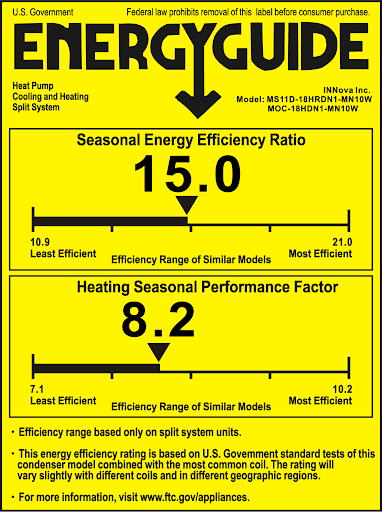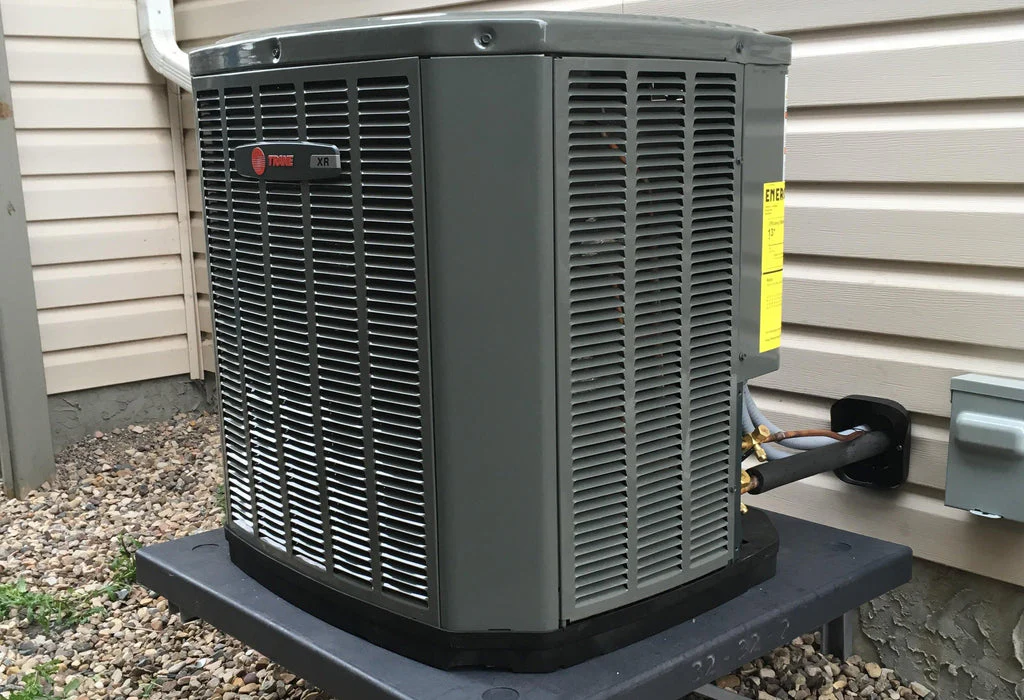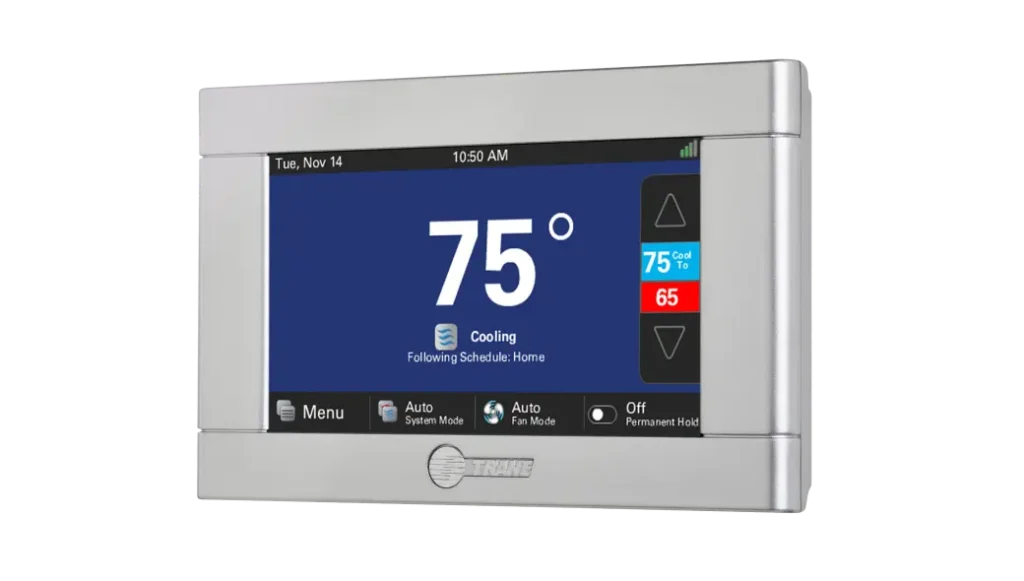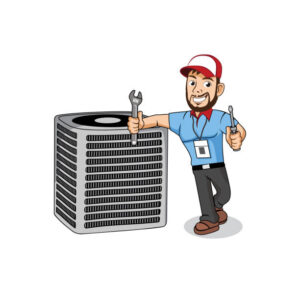As temperatures soar in Phoenix, homeowners depend on their air conditioning (AC) systems to stay cool. With such intense heat, consequently, your AC runs constantly during the summer; therefore, this leads to making energy bills a significant concern. One factor that can help you control your energy consumption is the SEER rating of your HVAC system. But what exactly is SEER, and why should you care about it?

What Is a SEER Rating?
SEER stands for Seasonal Energy Efficiency Ratio. It measures the cooling efficiency of an air conditioning unit or heat pump over an entire cooling season. Simply put, the rating tells you how efficiently your system uses electricity to cool your home.
It’s calculated by dividing the total cooling output (in British Thermal Units, or BTUs) by the total energy consumed (in watt-hours) over a cooling season. The higher the rating, the more efficient the unit is. For instance, an AC with a rating of 16 is more efficient than one with a rating of 13.
Why Does SEER Matter?
Your home’s air conditioner works overtime to cool it during Phoenix’s brutal summers, with temperatures regularly exceeding 100°F. Having a higher SEER-rated system can make a noticeable difference in your monthly utility bills.
Lower Energy Bills
Higher SEER ratings typically mean more efficient use of energy. An air conditioner with a higher SEER rating uses less electricity to achieve the same cooling output. This can lead to significant savings over time, especially during the scorching summer months when your AC is running continuously.
Environmental Impact
The more energy-efficient your HVAC system is, the less strain it puts on power plants, leading to lower carbon emissions. If you care about reducing your environmental footprint, a higher SEER rating is a smart choice. Lower energy consumption not only saves you money but also benefits the environment by decreasing the electricity demand.
Long-term Savings
While higher SEER-rated units may have a higher upfront cost, they offer long-term savings. Over the lifespan of your HVAC system, the energy savings can far outweigh the initial investment. In a place like Phoenix, where cooling is a necessity for several months of the year, the return on investment is often substantial.

How Do SEER Ratings Affect Your HVAC Performance?
The SEER rating directly impacts how efficiently your system performs. A higher rating doesn’t just mean lower energy bills; it also suggests better performance. Here’s how a higher SEER rating translates into superior cooling:
- Improved Cooling Comfort: Systems with higher SEER ratings are typically designed with advanced technology, such as variable-speed compressors. These systems can adjust the cooling output to better match your home’s needs. As a result, they can maintain a more consistent indoor temperature, improving your comfort.
- Less Frequent Cycling: Air conditioners with higher SEER ratings often cycle on and off less frequently. This means they experience less wear and tear, which can extend the lifespan of the system. Fewer cycles also mean fewer fluctuations in indoor temperature, keeping your home cool and comfortable.
- Quieter Operation: Higher SEER-rated units are generally quieter than their lower-rated counterparts. The advanced technology used in these systems often results in smoother and quieter operation, reducing noise disturbance in your home.
SEER Ratings and Phoenix’s Extreme Heat
Phoenix’s climate presents unique challenges for homeowners. With average summer temperatures consistently hitting the triple digits, choosing the right HVAC system is crucial. In Phoenix, a higher rating is especially important for several reasons:
- Long Cooler Seasons: In Phoenix, the cooling season stretches for several months. From late spring to early fall, your AC will likely be running for 8-9 months, with peak usage during June through September. A higher rated system helps ensure your air conditioner operates efficiently throughout this extended period.
- Intense Heat: During peak summer, the temperature in Phoenix can easily exceed 110°F. Your AC system is under heavy load during these extreme conditions. A higher rated unit can handle the demands of such heat better, preventing your system from overworking and reducing the chances of breakdowns.
- Humidity Control: Although Phoenix is known for its dry heat, humidity can still fluctuate. A higher HVAC rated system is typically better equipped to handle these changes. This can help regulate humidity levels in your home, ensuring that it remains comfortable even when outdoor conditions are less than ideal.
What Are the SEER Ratings You Should Look For?
The Department of Energy requires that all air conditioning systems sold in the U.S. have a minimum SEER rating of 13. However, ratings can go much higher, with modern systems reaching up to 20 or more. The most common ratings found in Phoenix homes are between 14 and 18.
When choosing an HVAC system, it’s essential to balance efficiency with cost. While HVAC systems with higher SEER ratings tend to be more expensive, they will often save you money in the long run. If you plan on staying in your home for several years, investing in a higher rated unit could lead to significant savings.
How to Improve Your HVAC Efficiency Beyond SEER Ratings
While choosing a higher SEER-rated system is a good first step, there are other actions you can take to improve the efficiency of your HVAC system:
- Regular Maintenance: Keep your system well-maintained with routine inspections and servicing. A dirty filter, clogged coils, or low refrigerant levels can cause your system to work harder, decreasing its efficiency.
- Proper Insulation: Insulate your home to prevent cool air from escaping and warm air from entering. The better your home’s insulation, the less your AC will need to run to maintain a comfortable temperature.
- Seal Leaks: Check for leaks in your ducts, windows, and doors. Even small gaps can lead to significant energy loss. Sealing these leaks helps your system work more efficiently.
- Programmable Thermostat: A programmable thermostat can automatically adjust the temperature when you’re not home, reducing the amount of time your system runs at full capacity.
SEER Ratings Matter in Phoenix’s Climate
In a city like Phoenix, where air conditioning is essential for comfort and survival, understanding SEER ratings is crucial. A higher SEER rating means better energy efficiency, lower utility bills, and improved cooling performance. By selecting a system with a higher SEER rating and maintaining your HVAC system properly, you can maximize the benefits of your investment and stay cool without breaking the bank.
When upgrading or replacing your HVAC system, take the time to carefully consider the SEER rating. Remember, a higher SEER rating might cost more initially, but the savings over time make it a wise choice for Phoenix homeowners who want to stay cool and save money.
By choosing wisely and maintaining your system, you’ll be ready to take on the Phoenix heat with comfort and confidence.




